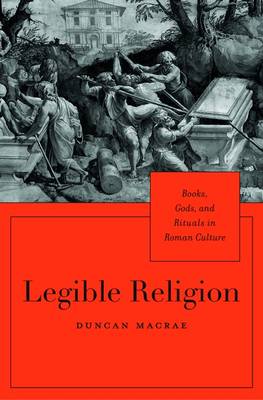Scholars have long emphasized the importance of scripture in religion, tacitly separating a few privileged "religions of the Book" from faiths lacking sacred texts, including ancient Roman religion. Looking beyond this distinction, Duncan MacRae delves into Roman religious culture to grapple with a central question: what was the significance of books in a religion without scripture? In the last two centuries BCE, Varro and other Roman authors wrote treatises on the nature of the Roman gods and the rituals devoted to them. Although these books were not sacred texts, they made Roman religion legible in ways analogous to scripture-based faiths such as Judaism and Christianity. Rather than reflect the astonishingly varied polytheistic practices of the regions under Roman sway, the contents of the books comprise Rome's "civil theology"-not a description of an official state religion but one limited to the civic role of religion in Roman life.
Tracing the subsequent influence of these religious texts from the late first century BCE to early fifth century CE, MacRae shows how the establishment of the Roman imperial monarchy and the rise of the Christian Church shaped their reception and interpretation.
- ISBN13 9780674969704
- Publish Date 8 August 2016 (first published 30 June 2016)
- Publish Status Active
- Publish Country US
- Imprint Harvard University Press
- Format eBook
- Pages 248
- Language English
- URL http://degruyter.com/search?f_0=isbnissn&q_0=9780674969704&searchTitles=true
